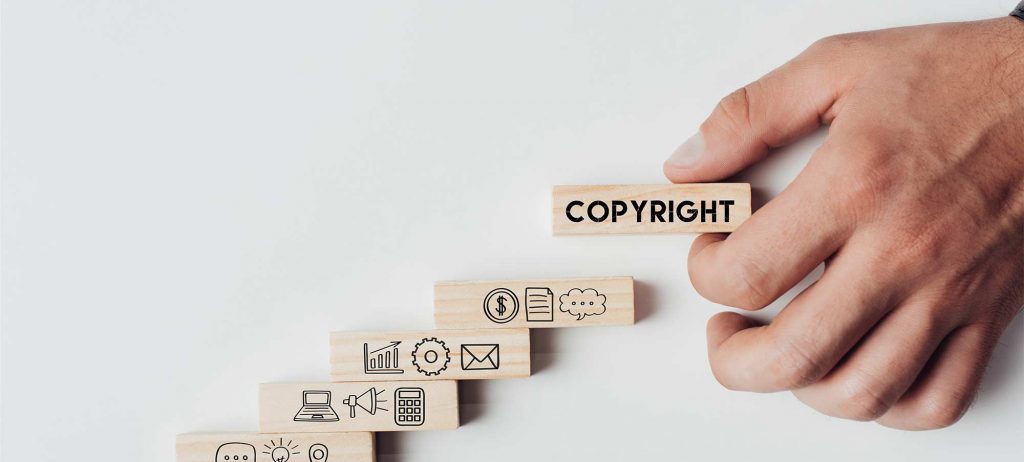How Does the DMCA Affect Photographers’ and Creative Professionals’ Copyrights?
You have surely seen the letters “DMCA” somewhere when you were buying music, downloading a movie from the Internet, or even while uploading your own work to an online platform. It is not surprising, considering that the Digital Millennium Copyright Act (DMCA) covers the use of copyrighted materials online.
The DMCA was enacted in 1998 to address issues related to copyright in the growing community of online platforms and ultimately protect copyright holders in today’s fast-paced technology-filled world. The DMCA is a US law that implements various intellectual property treaties of the World Intellectual Property Organization (WIPO).
How Does the DMCA Protect Content Creators?
Content creators in the United States typically have copyright over their works at the moment of their creation. The DMCA protects copyright holders, such as photographers or videographers, giving them a mechanism to combat copyright violations when someone infringes on their copyrights on the Internet.
For example, a photographer may legally demand under the DMCA that someone on Instagram takes down his photograph posted without consent. A videographer may also ask YouTube to take down her video if someone uploaded the content without consent.
Under the DMCA, several actions related to copyrighted content are classified as criminal acts. These might include the circulation of technologies that intend to circumvent protections on copyrighted works and other matters involving copyright infringement on the internet. The DMCA also criminalizes the act of circumventing an access control, even if there is no copyright infringement.
It is worth noting that under Section 512 of the DMCA, online service providers (OSP) can be protected from liability stemming from copyright infringement that occurs on their platforms (the “safe harbor” provision).
The safe harbor provision of the DMCA limits the liability of OSPs when they meet specific criteria. This means that if someone uploaded your photographs on Flickr without crediting you, you might complain to Flickr. However, Flickr may avoid liability for the copyright infringement under the ‘safe harbor’ provision, with liability being on the Flickr account member who posted the photograph.
How Do OSPs Receive Protection Under the Safe Harbor Provision of the DMCA?
There are several requirements that OSPs need to meet to fall under Section 512. According to the Harvard DMCA Overview, the OSP must:
- Take action when it receives notice that infringing material is on its platform
- Remove repeat infringers
- Enact standard technical measures that are used by copyright owners to identify and protect copyrighted works
- Not have any knowledge of infringing content or not be aware of any facts that would make the activity or content apparent
- Not receive any financial benefit attributable to the infringing content
Remember – for an OSP to fall under the ‘safe harbor’ provision, it must meet these requirements. If it does not, the safe harbor provision does not provide protection.
Consider the following example; an online platform received a photograph, profited from it, and distributed it. You later found out that it was your photo and filed a complaint about copyright infringement. The OSP might not meet the requirements to invoke the safe harbor provision because it received a financial benefit from the material in question. This factor alone might take the OSP out from under the safety of Section 512, and you, as the content creator, could seek legal remedies from the OSP, together with the copyright infringer.
How Photographers Can Deal with Copyright Infringement on the Internet
If you find your creations somewhere on the internet, you can consider filing a complaint about copyright infringement. The first step is usually to send a cease and desist letter to the online platform or owner of the site where your work (and the infringement) is occurring. Many OSPs at this point would take action, especially huge online digital media platforms since that is one requirement needed to fall under the ‘safe harbor’ provision of the DMCA.
If an OSP ignores your request, they might be liable as well for copyright infringement. When this happens, you might be able to file a complaint for infringement against the one who committed the infringement and the owner or entity behind the online platform that hosted the infringed work.
Our Copyright Lawyers at Sanders Law Group, Can Help Photographers and Creative Professionals Fight Copyright Infringement
If you think someone or an OSP is violating your copyright, our copyright infringement lawyers can help you. We can help you file a complaint for copyright infringement against corporations and other entities to protect your rights. Our copyright lawyers are dedicated to ensuring that our clients’ rights are protected, whether you are an artist, a photographer, or a content creator.
Call Sanders Law Group today at (800) 979-3707 and let our copyright lawyers help you protect your photographs and other artistic creations. We offer free copyright infringement consultations with no obligation.



